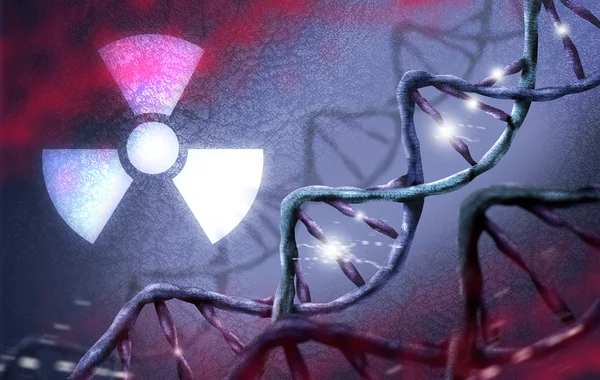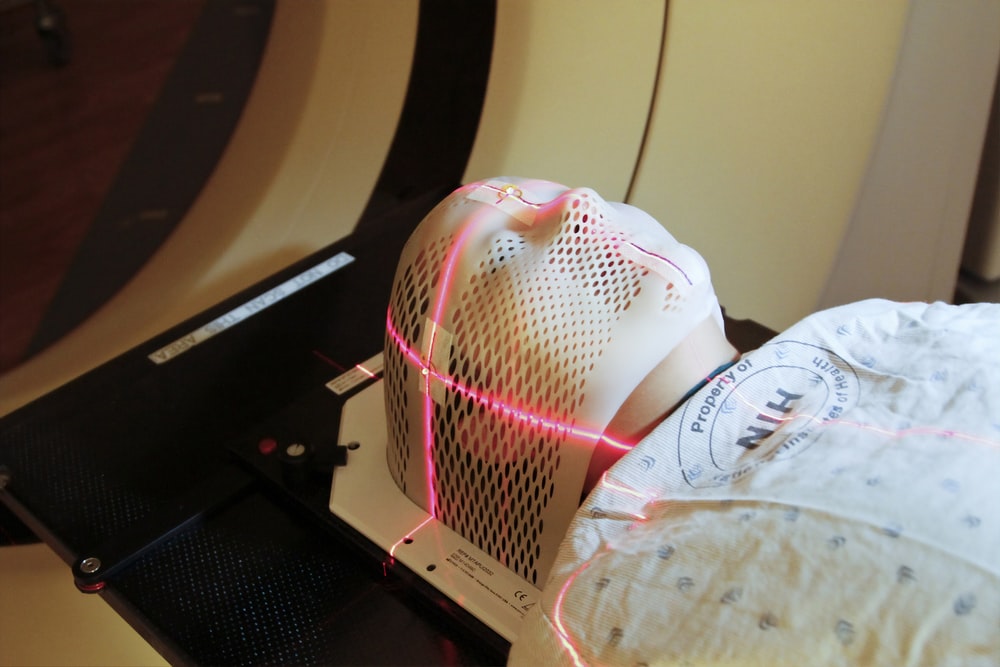Radiation therapy or radiotherapy is cancer treatment. It kills cancer cells and treats them by irradiating them with radiation, which is less physically burdensome than surgery. It is also an anticancer treatment for those who do not have the physical strength to withstand surgery or for some reason. It means that even people who cannot endure chemotherapy can be treated with radiation.
While radiation can stop cell division and kill cancer cells, but it can also damage normal cells. The early reaction of side effects includes inflammation of the skin and mucous membranes and bone marrow disorders such as leukopenia. Late reactions that appear months to a decade later include atrophy of the skin and subcutaneous tissue, fibrosis, respiratory distress due to fibrosis of the lungs, and paralysis of the central nervous system. Hence, developing a radiotherapy method with few side effects and high therapeutic effects is currently required.

Under other conditions, brown algae belonging to the kelp family that is widely used in foods are rich in polysaccharides and composed of many sulfated polysaccharides such as fucoidan, which are sulfated fucose and galactose. Primarily, fucoidan is known to have anticancer effects without side effects and is expected to be applied to cancer treatment. So, in this blog, I have briefly documented fucoidan’s effect of anticancer and reduction of colonization from “Fucoidan from brown algae Laminaria longipes and Saccharina cichoriodes: Structural characteristics, anticancer and radiosensitizing activity in vitro,” by Roza V Usoltseva et al.
First, the study particularly used human malignant melanoma cell line SK-MEL-28, human colon cancer cell line HT29, and human breast cancer cell line MDA-MB-231, fucoidan (LIF) derived from 100-400 µg / mL Laminaria longipes and fucoidan (LIF). Then the number of colonies formed was measured by culturing in the presence of fucoidan (ScF) derived from Sacchraina cichoriodes. As a result, both FIF and ScF suppressed colonization of SK-MEL-28 cells and HT29 cells in a dose-dependent manner. When 400 µg / mL fucoidan was added, a maximum colony reduction of 45% was observed ( Fig. 1).
In MDA-MB-231 cells, the colonization inhibitory effect of FIL and ScF was up to 16% (Fig. 1). Next, the effects of irradiation and fucoidan on the growth of each cancer cell line were examined. As a result, the colony-forming performance of each cancer cell was significantly suppressed by X-ray irradiation, and LIF and ScF increased the suppression of colony formation associated with X-ray irradiation at a dose of 1/10 of the previous dose. (Fig. 2). These results confirm that non-toxic low-dose fucoidan significantly proliferates the cancer cell proliferation inhibitory effect of irradiation. Thus, it is expected to treat various cancer diseases such as colon cancer and breast cancer.



Fig.1) Suppressive effect of fucoidan derived from two types of kelp on the colony-shaped performance of each cancer cell



Fig. 2) Combined effect of irradiation and fucoidan on the colonization ability of each cancer cell
